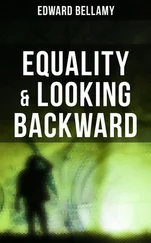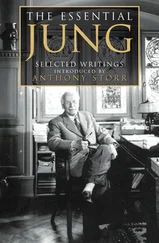Edward Bellamy - The Essential Writings of Edward Bellamy
Здесь есть возможность читать онлайн «Edward Bellamy - The Essential Writings of Edward Bellamy» — ознакомительный отрывок электронной книги совершенно бесплатно, а после прочтения отрывка купить полную версию. В некоторых случаях можно слушать аудио, скачать через торрент в формате fb2 и присутствует краткое содержание. Жанр: unrecognised, на английском языке. Описание произведения, (предисловие) а так же отзывы посетителей доступны на портале библиотеки ЛибКат.
- Название:The Essential Writings of Edward Bellamy
- Автор:
- Жанр:
- Год:неизвестен
- ISBN:нет данных
- Рейтинг книги:4 / 5. Голосов: 1
-
Избранное:Добавить в избранное
- Отзывы:
-
Ваша оценка:
- 80
- 1
- 2
- 3
- 4
- 5
The Essential Writings of Edward Bellamy: краткое содержание, описание и аннотация
Предлагаем к чтению аннотацию, описание, краткое содержание или предисловие (зависит от того, что написал сам автор книги «The Essential Writings of Edward Bellamy»). Если вы не нашли необходимую информацию о книге — напишите в комментариях, мы постараемся отыскать её.
Contents:
Novels:
Looking Backward: 2000–1887
Equality
Dr. Heidenhoff's Process
Miss Ludington's Sister
The Duke of Stockbridge
Short Stories:
The Blindman's World
An Echo of Antietam
The Old Folks' Party
The Cold Snap
Two Days' Solitary Imprisonment
A Summer Evening's Dream
Potts's Painless Cure
A Love Story Reversed
Deserted
Hooking Watermelons
A Positive Romance
Lost
With The Eyes Shut
At Pinney's Ranch
To Whom This May Come
The Essential Writings of Edward Bellamy — читать онлайн ознакомительный отрывок
Ниже представлен текст книги, разбитый по страницам. Система сохранения места последней прочитанной страницы, позволяет с удобством читать онлайн бесплатно книгу «The Essential Writings of Edward Bellamy», без необходимости каждый раз заново искать на чём Вы остановились. Поставьте закладку, и сможете в любой момент перейти на страницу, на которой закончили чтение.
Интервал:
Закладка:
"No doubt," I answered, "but it is just an illustration, I suppose, of the lack of unselfish public spirit among my contemporaries that I do not feel disposed to make myself a spectacle even in the cause of education. Besides, what is the need? You can tell me as well as the judges could what the answer would be, and as it is the answer I want and not the property that will do just as well."
"No doubt," said the doctor, "I could give you the general line of reasoning they would follow."
"Very well. Let us suppose, then, that you are the court. On what ground would you refuse to return me my million, for I assume that you would refuse?"
"Of course it would be the same ground," replied the doctor, "that the nation proceeded upon in nationalizing the property which that same million represented at the time of the great Revolution."
"I suppose so; that is what I want to get at. What is that ground?"
"The court would say that to allow any person to withdraw or withhold from the public administration for the common use any larger portion of capital than the equal portion allotted to all for personal use and consumption would in so far impair the ability of society to perform its first duty to its members."
"What is this first duty of society to its members, which would be interfered with by allowing particular citizens to appropriate more than an equal proportion of the capital of the country?"
"The duty of safeguarding the first and highest right of its members--the right of life."
"But how is the duty of society to safeguard the lives of its members interfered with when one person, has more capital than another?"
"Simply," answered the doctor, "because people have to eat in order to live, also to be clothed and to consume a mass of necessary and desirable things, the sum of which constitutes what we call wealth or capital. Now, if the supply of these things was always unlimited, as is the air we need to breathe, it would not be necessary to see that each one had his share, but the supply of wealth being, in fact, at any one time limited, it follows that if some have a disproportionate share, the rest will not have enough and may be left with nothing, as was indeed the case of millions all over the world until the great Revolution established economic equality. If, then, the first right of the citizen is protection to life and the first duty of society is to furnish it, the state must evidently see to it that the means of life are not unduly appropriated by particular individuals, but are distributed so as to meet the needs of all. Moreover, in order to secure the means of life to all, it is not merely necessary that the state should see that the wealth available for consumption is properly distributed at any given time; for, although all might in that case fare well for to-day, tomorrow all might starve unless, meanwhile, new wealth were being produced. The duty of society to guarantee the life of the citizen implies, therefore, not merely the equal distribution of wealth for consumption, but its employment as capital to the best possible advantage for all in the production of more wealth. In both ways, therefore, you will readily see that society would fail in its first and greatest function in proportion as it were to permit individuals beyond the equal allotment to withdraw wealth, whether for consumption or employment as capital, from the public administration in the common interest."
"The modern ethics of ownership is rather startlingly simple to a representative of the nineteenth century," I observed. "Would not the judges even ask me by what right or title of ownership I claimed my wealth?"
"Certainly not. It is impossible that you or any one could have so strong a title to material things as the least of your fellow-citizens have to their lives, or could make so strong a plea for the use of the collective power to enforce your right to things as they could make that the collective power should enforce their right to life against your right to things at whatever point the two claims might directly or indirectly conflict. The effect of the disproportionate possession of the wealth of a community by some of its members to curtail and threaten the living of the rest is not in any way affected by the means by which that wealth was obtained. The means may have constituted, as in past times they often did by their iniquity, an added injury to the community; but the fact of the disproportion, however resulting, was a continuing injury, without regard to its beginnings. Our ethics of wealth is indeed, as you say, extremely simple. It consists merely in the law of self-preservation, asserted in the name of all against the encroachments of any. It rests upon a principle which a child can understand as well as a philosopher, and which no philosopher ever attempted to refute--namely, the supreme right of all to live, and consequently to insist that society shall be so organized as to secure that right.
"But, after all," said the doctor, "what is there in our economic application of this principle which need impress a man of your time with any other sensation than one of surprise that it was not earlier made? Since what you were wont to call modern civilization existed, it has been a principle subscribed to by all governments and peoples that it is the first and supreme duty of the state to protect the lives of the citizens. For the purpose of doing this the police, the courts, the army, and the greater part of the machinery of governments has existed. You went so far as to hold that a state which did not at any cost and to the utmost of its resources safeguard the lives of its citizens forfeited all claim to their allegiance.
"But while professing this principle so broadly in words, you completely ignored in practice half and vastly the greater half of its meaning. You wholly overlooked and disregarded the peril to which life is exposed on the economic side--the hunger, cold, and thirst side. You went on the theory that it was only by club, knife, bullet, poison, or some other form of physical violence that life could be endangered, as if hunger, cold, and thirst--in a word, economic want--were not a far more constant and more deadly foe to existence than all the forms of violence together. You overlooked the plain fact that anybody who by any means, however indirect or remote, took away or curtailed one's means of subsistence attacked his life quite as dangerously as it could be done with knife or bullet--more so, indeed, seeing that against direct attack he would have a better chance of defending himself. You failed to consider that no amount of police, judicial, and military protection would prevent one from perishing miserably if he had not enough to eat and wear."
"We went on the theory," I said, "that it was not well for the state to intervene to do for the individual or to help him to do what he was able to do for himself. We held that the collective organization should only be appealed to when the power of the individual was manifestly unequal to the task of self-defense."
"It was not so bad a theory if you had lived up to it," said the doctor, "although the modern theory is far more rational that whatever can be done better by collective than individual action ought to be so undertaken, even if it could, after a more imperfect fashion, be individually accomplished. But don't you think that under the economic conditions which prevailed in America at the end of the nineteenth century, not to speak of Europe, the average man armed with a good revolver would have found the task of protecting himself and family against violence a far easier one than that of protecting them against want? Were not the odds against him far greater in the latter struggle than they could have been, if he were a tolerably good shot, in the former? Why, then, according to your own maxim, was the collective force of society devoted without stint to safeguarding him against violence, which he could have done for himself fairly well, while he was left to struggle against hopeless odds for the means of a decent existence? What hour, of what day of what year ever passed in which the number of deaths, and the physical and moral anguish resulting from the anarchy of the economic struggle and the crushing odds against the poor, did not outweigh as a hundred to one that same hour's record of death or suffering resulting from violence? Far better would society have fulfilled its recognized duty of safeguarding the lives of its members if, repealing every criminal law and dismissing every judge and policeman, it had left men to protect themselves as best they might against physical violence, while establishing in place of the machinery of criminal justice a system of economic administration whereby all would have been guaranteed against want. If, indeed, it had but substituted this collective economic organization for the criminal and judicial system it presently would have had as little need of the latter as we do, for most of the crimes that plagued you were direct or indirect consequences of your unjust economic conditions, and would have disappeared with them.
Читать дальшеИнтервал:
Закладка:
Похожие книги на «The Essential Writings of Edward Bellamy»
Представляем Вашему вниманию похожие книги на «The Essential Writings of Edward Bellamy» списком для выбора. Мы отобрали схожую по названию и смыслу литературу в надежде предоставить читателям больше вариантов отыскать новые, интересные, ещё непрочитанные произведения.
Обсуждение, отзывы о книге «The Essential Writings of Edward Bellamy» и просто собственные мнения читателей. Оставьте ваши комментарии, напишите, что Вы думаете о произведении, его смысле или главных героях. Укажите что конкретно понравилось, а что нет, и почему Вы так считаете.












